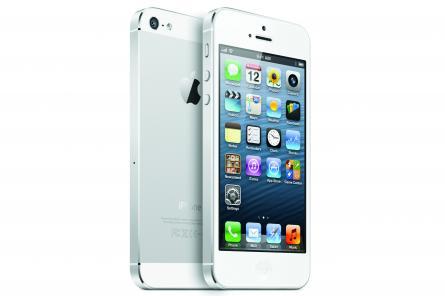The Apple iPhone 5 may be designed more to woo consumers than businesses, but that won’t stop employees from bringing their shiny new smartphones into the workplace. This may put more pressure on businesses to develop bring-your-own-device (BYOD) policies, analysts say.
“I don’t think the device itself encourages more Apple devices” to be purchased by businesses, Gartner US analyst Ken Dulaney told Computerworld Australia. However, “consumers want it [and] what’s happened in IT is that the consumers get a vote that they didn’t have five years ago.”

Telsyte analyst Foad Fadaghi similarly sees there's not much that would drive businesses to adopt the iPhone 5 if they have already bought previous models, he said. Improvements to security are part of the operating system, iOS 6, which is also available on older models of iPhone, he noted. “It’s not likely that this model will put people over the edge if they [have] already considered or trialled the [other iPhone] devices,” he said.
“The enterprise is something that Apple wants, but they’re not doing a lot for it” in terms of specific features or standards, Dulaney said. The new Passbook app may be “most interesting for business because I believe that it represents the starter kit for Apple getting into payments long term,” he said. “This ability to store company credentials in a secure place is an important step and could have long-term implications.”
Another benefit of the new iPhone for businesses is a feature called global proxy, Dulaney said. When a user connects to the public Internet, they can be routed to their company for filtering.
However, a possibly negative feature for businesses is the phone’s tighter integration with Facebook, Dulaney said. “The coupling of email and Facebook may cause information to leak more out into the uncontrolled domain that many enterprises fear.”
Regardless of the iPhone 5’s appeal to businesses, its popularity with consumers makes a BYOD policy important, Fadaghi said. “For businesses, the biggest challenge is managing the variety of devices that are in the enterprise, whether they are in-house or BYOD,” he said. “We recommend that businesses do consider BYOD as a strategy both for keeping employees happy” and increasing their productivity.
“The iPhone 5 will be extremely popular, and we would expect around 70 per cent of professionals who own one to use it for work,” said Ovum analyst Richard Absalom. "But we’d also expect around 70 per cent of professionals who own an Android phone to do the same — and there are far more of them. So as the smartphone market in general grows ... so will the BYOD trend," he said.
“This surging usage does mean that it’s important for companies to develop and implement policies governing BYOD, in order to protect the corporate data being accessed on personally owned devices,” Absalom said.
Continued high demand for iPhone devices does provide some “planning advantages” for businesses, Fadaghi said. “We know that a lot of existing iPhone users are planning to get the next model of iPhone,” he said. For businesses, “that can actually build some predictability around purchase cycles.”
The new iPhone looks to continue to eat into Research In Motion’s BlackBerry sales, analysts predicted. Gartner has seen “a lot of substitution” in the enterprise of BlackBerry for iPhone, Dulaney said. “We just constantly get feedback from major customers wanting to downplay the BlackBerry [and] reduce the size of” their fleets." However, Dulaney said he’s watching the impact of a new BlackBerry model coming early next year.
BlackBerry never found “massive traction” in Australia, Fadaghi said. “For them, single-digit market share in the consumer space has been fairly stable through the course of its availability in the Australian market. Businesses that had all BlackBerries in the past either continue to support them or give the employees a choice of having a BlackBerry or an iPhone or an Android.”
Read more about the pros and cons of the iPhone 5 for enterprise.
Follow Adam Bender on Twitter: @WatchAdam
Follow Computerworld Australia on Twitter: @ComputerworldAU, or take part in the Computerworld conversation on LinkedIn: Computerworld Australia
Join the CIO Australia group on LinkedIn. The group is open to CIOs, IT Directors, COOs, CTOs and senior IT managers.
